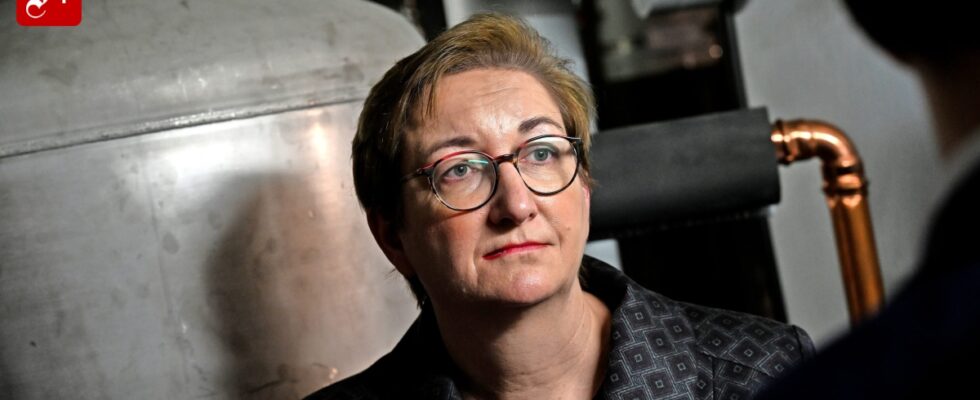In the basement of Schöppinger Strasse 18 in Berlin-Lichterfelde it is already toasty and warm. Klara Geywitz is standing next to a floor-to-ceiling gray container to which various sensors are attached. Gray plastic pipes run along the walls and under the ceiling, and a subtle hum fills the room. The SPD building minister seems satisfied. “It’s very quiet,” she says, looking at the heat pump that supplies five apartment buildings belonging to the Märkische Scholle cooperative from this basement. “A lot of people think they’re just small steam locomotives.” No, no, says Jochen Icken, chairman of the cooperative. Devices like this only have a little more than 40 decibels, which is hardly disturbing.
A date like this would hardly have interested anyone a few years ago. However, ever since the draft by Economics Minister Robert Habeck (Greens) and Geywitz to reform the Building Energy Act (GEG) has been in the world, heat pumps have become a highly political issue. Which is why Geywitz is surrounded by cameras and microphones in the basement. From next year, at least that is the plan, no new oil or gas heating systems should be installed in Germany. The heating of the future should be the heat pump, CO2-neutrally operated with green electricity. The FDP, homeowners and parts of the SPD have criticized the plans, some with harsh words. Geywitz’s appointment in Lichterfelde-Süd is therefore also a statement: It’s possible.
